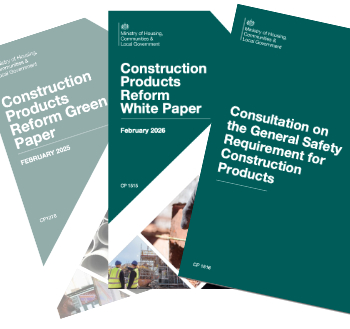Profitability
Contents |
[edit] Introduction
The term 'profitability' refers to the profit-earning capability of a business, product, project or programme. When all expenses and taxes have been paid, the revenue that is left is the profit.
To maximise profitability, a business must determine which of their activities are proving successful and which require improvement. An effective profitability strategy can only be developed if the key factors determining profitability are understood.
To maintain profitability in the construction industry, businesses must overcome the challenges posed by volatile material, labour and equipment costs and the complexity and risk of bidding on projects with long durations against tight competition.
The construction industry is notoriously susceptible to changes in economic outlook, and regularly goes through booms and busts as it is used to hold back or push forward the wider economy. The 2015 UK Industry Performance Report suggested that the profitability of the construction industry was around 3%, up from around 2% the previous year, but well below the peak of 9.9% in 2009.
[edit] Profitability ratios
A number of profitability ratios can be used to measure the ability of a business to generate revenue relative to the expenses incurred.
- Net profit margin measures the business’ ability to generate revenue. Net profit margin = (net income / net sales) x 100.
- Gross profit margin measures the cost of production. Gross profit margin = (gross profit / net sales) x 100.
- Operating margin is a measure of the percentage of revenue left after covering additional operating expense, i.e. those unrelated to the actual work itself, such as office rent. Operating margin = (operating profit / net sales) x 100
[edit] Increasing profitability
Strategies for increasing profitability will vary depending on the type of business, the nature of competition, the state of the market, and so on.
However, some general techniques that businesses can adopt to increase profitability include:
- Effective analysis of potential new projects prior to tendering.
- Reflecting on previous projects to make improvements and efficiencies.
- A good understanding of risks and mitigation strategies.
- Accurate cost planning.
- Control of fixed cost overheads such as; rent, utilities, equipment, salaries, and so on.
- Making more effective use of resources.
- Improving productivity.
- Reducing waste.
- Maintaining a tight control on variations and change orders.
- Use of accounting software and establishing robust accounting practices so that invoices and so on can be processed accurately and efficiently and cash flow maintained.
- Implementing staff training so that employees can grow their skills and responsibilities rather than finding work elsewhere.
- Investing in new technologies and systems and adapting them effectively to the business.
[edit] Related articles on Designing Buildings Wiki
Featured articles and news
Scottish parents prioritise construction and apprenticeships
CIOB data released for Scottish Apprenticeship Week shows construction as top potential career path.
From a Green to a White Paper and the proposal of a General Safety Requirement for construction products.
Creativity, conservation and craft at Barley Studio. Book review.
The challenge as PFI agreements come to an end
How construction deals with inherited assets built under long-term contracts.
Skills plan for engineering and building services
Comprehensive industry report highlights persistent skills challenges across the sector.
Choosing the right design team for a D&B Contract
An architect explains the nature and needs of working within this common procurement route.
Statement from the Interim Chief Construction Advisor
Thouria Istephan; Architect and inquiry panel member outlines ongoing work, priorities and next steps.
The 2025 draft NPPF in brief with indicative responses
Local verses National and suitable verses sustainable: Consultation open for just over one week.
Increased vigilance on VAT Domestic Reverse Charge
HMRC bearing down with increasing force on construction consultant says.
Call for greater recognition of professional standards
Chartered bodies representing more than 1.5 million individuals have written to the UK Government.
Cutting carbon, cost and risk in estate management
Lessons from Cardiff Met’s “Halve the Half” initiative.
Inspiring the next generation to fulfil an electrified future
Technical Manager at ECA on the importance of engagement between industry and education.
Repairing historic stone and slate roofs
The need for a code of practice and technical advice note.
Environmental compliance; a checklist for 2026
Legislative changes, policy shifts, phased rollouts, and compliance updates to be aware of.



















